Humanitarian Operations
Thesis Executive Summaries
The thesis is the culmination of the program where participants apply theories learned in their master’s in an academic research paper. Executive summaries of a selection of our theses are highlighted here and represent the raw material developed by students as part of the thesis required for their Swiss Master of Advanced Studies in Humanitarian Logistics and Management Program MASHLM. Participants in MASHLM are active professionals working with logistics, operations, and management in the humanitarian sector and they often implement the results of their theses in their place of work. We embrace this practice of applied research, and support participants and alumni in furthering their work in improving humanitarian conditions in the developing world.
In support of the principle of Open Access, we aim to maximize the visibility and availability of the executive summaries of our theses which are based on real-life situations in humanitarian logistics and operations across a variety of contexts, such as migration, military conflicts, emergency operations, negotiations, fundraising, stakeholder coordination, environmental impact, and ICT.
We believe that the study of Humanitarian Operations has a growing role in the relationship of organizations, companies, and governments with the public, between and within organizations. There are many tools such as our theses that are available to facilitate access, analyze and practice humanitarian operations, logistics and management at an advanced and professional level

|
_____________________________
Online fundraising in Switzerland
Why are small Swiss social and humanitarian organizations not penetrating the
online market in spite of the steady increase in online activity?
Keywords: Information Technology | Fundraising | Switzerland
|
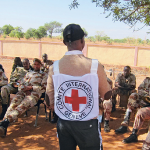
|
_____________________________
Coordinating Military and Humanitarian Action
How to find a balance between the preservation the humanitarian space and the
need for engaging with the military in increasingly complex crises.
Keywords: Supply Chain | Civil-Military | Mali | System Dynamic
|
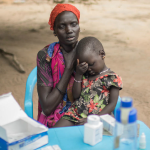
|
_____________________________
How can a stockout jeopardize lives?
During conflict or disasters, running out of stock of key medical or humanitarian aid
items can be tragic. This project proposes a tool to analyze inventory data to identify
reasons for stockouts.
Keywords: Inventory Management | KPI | Monitoring | Sudan
|
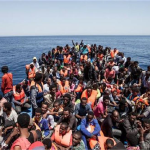
|
_____________________________
Do young people know the risks of unauthorized migration?
Challenges can include long stays in refugee camps and life-threatening situations.
Most leavers are young men, and they leave because of conflicts, natural disasters,
and wars, to work or study, or improve their lives.
Keywords: Migration | Reasons to Migrate | Afghanistan
|

|
_____________________________
Reintegrating in Iraq
Are current reintegration programs sustainable? Are returners faced with the same
issues the migrants for avoiding further irregular migration attempts and what are
necessary changes possible to make the programs more effective?
Keywords: Migration | Return to Original Country | Iraq
|

|
_____________________________
The Crucial Role of Women in Humanitarian Organisations
Females receiving aid prefer to interact with interact with female logisticians and
supply chain workers. Despite the many positive capabilities of females in this
discipline, there are major cultural barriers agencies in employing females.
Keywords: Human Resources | Gender equality | Humanitarian field | Global
|
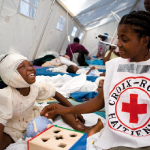
|
_____________________________
Relationship Building to Optimize Medical Supply Distribution
This managerial approach expands the role of lead buyers so they can adeptly
respond to crises by controlling more of the supply centrally and strengthening
their relationships to suppliers to reduce lead times.
Keywords: Procurement | Process Design | Global | Preparation
|
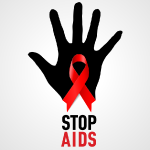
|
_____________________________
An Aids-Free Generation in Côte d’Ivoire
Ministry of Health policies are captured in a system dynamics model to project
the instance of HIV/AIDS into the future. Stakeholders can see how their decisions
to allocate budget in different programs can affect the epidemic.
Keywords: Healthcare | Policy Design | HIV/AIDS | Ivory Cost
|

|
_____________________________
Fleet Readiness for Disaster Response
The IOM International Organization for Migration has vehicles scattered around the
globe. To deploy them effectively, the IOM must set standards and implement
policies to create a solid fleet management platform within the organization.
Keywords: Fleet Management | Organization Policy | IOM
|
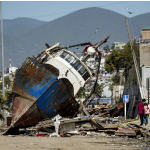
|
_____________________________
From Emergency Response to Post-Crisis
Transition does not happen by itself. Understanding the needs of different phases
of response, and managing resources and capacity to efficiently face each phase
encourages development.
Keywords: Strategic Planning | Transition from Response to Recovery
|

|
_____________________________
The Trouble with Getting Data in Iraq
Data overload carries additional financial, technical and social costs to the system.
Excessive quantities of data could seriously jeopardize the delivery of assistance
by the IOM to the vulnerable population.
Keywords: Information Management | Data | Iraq | System Dynamics
|

|
_____________________________
Accessing the Vulnerable in Syria
How does the funding of humanitarian aid, the security situation on the ground and
coordination among humanitarian organizations interact to affect the accessibility
of humanitarian aid to vulnerable populations in Syria?
Keywords: Security in Operations | Relief delivery | Syria
|

|
_____________________________
Driven out by Drought in Somalia
More than half of Somalians risk starvation caused by repeated droughts.
To prevent them, the government could examine land use reforms and livestock
production patterns and implement regional and national collaborations
Keywords: Migration | Climate Change | Mitigation Policies
|
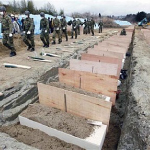
|
_____________________________
Just Lying There: What to Do with the Dead
After a major earth earthquake in Dhaka, Bangladesh, accepted protocol for
fatality management was insufficient. Consideration for the dignity of loved
ones among other concerns are explored.
Keywords: Fatality Protocol | Legal Framework | Response Policy
|

|
_____________________________
Somalia’s Fleeing Youth: Why do they leave?
To curb the flow of fleeing youth, underlying causes must be addressed such as
the leadership failure, corruption and proxy wars. Desperate youth risk their lives
for a chance for a better future.
Keywords: Migration | Mitigation Policies | Leadership | Corruption
|

|
_____________________________
Successfully Integrating Somali Refugees into Sweden
Cultural differences marginalize recent arrivals. Recommendations for Swedish
authorities and refugees to improve integration are examined.
Keywords: Migration | Integration | Multiculturalism
|

|
_____________________________
Contributing Factors to the Ebola Epidemic in Liberia
Inadequate reporting procedures and lack of staff training made an effective and
rapid response to the Ebola crisis a challenge. Recommendations for
collaboration and planning are proposed.
Keywords: Health Care | Epidemic | Medical Supply Chain
|
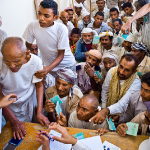
|
_____________________________
Fixing cash distribution to Refugees in Yemen
Internally displaced refugees in Yemen suffer from hunger and do not have clean
water.They rely on cash payments from the United Nations yet are often left waiting.
This paper explores ways to reduce waiting periods and suffering.
Keywords: ICT | Refugee | Internally Displaced Persons | Lean Six Sigma
|

|
_____________________________
The Role of the Military in Humanitarian Relief
In areas of conflict, the military are often first on the scene in humanitarian crises.
This paper examines how the military can collaborate with humanitarian agencies
to improve the lives of displaced persons.
Keywords: Civil-Military Relations | IDP Internally Displaced Persons
|

|
_____________________________
Optimizing UNICEF’s Global Warehouse Hub Structure
Maintaining supplies in key locations around the world is at the heart of UNICEF’s
early response capability. This structured mapping of theoretical locations proposes
new locations to reduce transit time.
Keywords: Supply Chain Optimization | Centre of Gravity | Transportation
|

|
_____________________________
Cloud-based System for Delivery of Medical Supplies in Sudan
Ongoing conflicts have caused a surge of refugees into Sudan, mostly children.
To relieve suffering, RapidPro, a real-time app, calls for the collaboration between
international humanitarian agencies and the local Ministry of Health.
Keywords: ICT | Cloud Services | Medical Relief
|
Subscribe Us
If you want to receive our last updated summaries or news about the program, leave us your email, and you will know in first-hand about humanitarian education and cutting-edge research in the humanitarian field.























